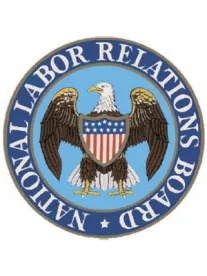The last two weeks have seen a number of developments related to the NLRB’s ability to claim jurisdiction over Indian tribes and their operations. What is becoming clear is that nothing is settled, and this issue is likely headed for the Supreme Court or a possible legislative “fix.”
The first development was the NLRB’s June 4 decision in Chickasaw Nation d/b/a Winstar Casino, 362 NLRB No. 109. This unfair labor practice case was filed by the Teamsters and challenged whether the Chickasaw Nation, which operates the WinStar World Casino in Oklahoma, is subject to the NLRB’s jurisdiction. An earlier panel of the NLRB had said yes. However, the Supreme Court’s decision inNoel Canning resulted in the vacating of that ruling.
For the Chickasaw Nation the second time proved a charm. In the most recent case, a different NLRB panel declined jurisdiction over the Chickasaw Nation. Applying the NLRB’s decision in San Manuel Indiana Bingo & Casino, 341 NLRB 1055 (2004), enfd. 475 F.3d 1306 (D.C. Cir. 2007), the NLRB on the second go around determined that although application of the NLRA to the to the Chicksaw Nation would advance the policies of the NLRA, the Board was constrained to assert its jurisdiction because to do so would abrogate a specific treaty right. In San Manuel, the Board determined that the NLRA is a statute of “general application” that applies to Indian tribes, unless (1) the law “touch[ed] exclusive rights of self-government in purely intramural matters”; (2) the application of the law would abrogate treaty rights; or (3) there was “proof” in the statutory language or legislative history that Congress did not intend the Act to apply to Indian tribes. In this case, the Board found that application of the law would, under the proper rules of construction, abrogate rights secured to the tribe under two treaties entered into in 1830 and 1866.
The Board’s decision is contrary to two earlier cases decided underSan Manuel where the Board found jurisdiction over two Michigan Indian tribes, Little River Band of Ottawa Indians Tribal Government, 361 NLRB No. 45 (2014) and Soaring Eagle Casino & Resort, 361 NLRB No. 73 (2014). In fact, on June 8, only days after the NLRB’s Chickasawdecision, the Sixth Circuit Court of Appeals affirmed the NLRB in theLittle River Band case over a vigorous dissent by Sixth Circuit Judge David W. McKeague. This litigation also was spawned from as unfair labor practice charge filed by the Teamsters which alleged that the tribe’s 2005 Fair Supplement Practices Code, which regulated the right to organize and engage in collective bargaining, violated the NLRA. As set forth above, the NLRB asserted jurisdiction and agreed. And now the Sixth Circuit has affirmed that ruling. However, Judge McKeague disagreed finding the majority’s decision ignored the Supreme Court’s 2014 ruling in Michigan v. Bays Mill Indian Community, which held that only a clear congressional statement could abrogate a tribe’s immunity. The Sixth Circuit decision also appears to create a circuit split with the Tenth Circuit, which rejected NLRB jurisdictiono ver a Pueblo tribe in 2002. Given these conflicting views, this issue is clearly teed up for a visit to the Supreme Court.
Adding to the mix is the fact that the Saginaw Michigan Chippewa Tribe filed suit on June 9 in the U.S. District Court for the Eastern District of Michigan challenging the application of the NLRB “quickie election” rules. The lawsuit challenges both the substance of those rules on various constitutional rules and the right of the NLRB’s Regional Director to apply those rules to the tribe. This legislation is the result of the United Steelworkers filing a petition to seek the representation of guest service workers at the tribe’s Soaring Eagle Casino. Of course, as noted above, the NLRB earlier found that the NLRA applied to the tribe, a case that currently is also on appeal to the Sixth Circuit. Given the Sixth Circuit’s ruling in Little River Band of Ottawa Indians, it appears the Tribe’s arguments, at least as they relate to jurisdiction, may have little chance for success. Notwithstanding this, however, the lawsuit certainly will tie up the plans for an NLRB election occurring any time soon at the Tribe’s casino. And the litigation presents another general challenge to the NLRB’s “quickie election” rules, a topic we covered earlier in the week.
Finally, on June 10, the Senate Indian Affairs Committee advanced a bill in Congress (S.248) that would prevent the application of federal labor law to businesses operated on tribal lands. This measure, if enacted, would prevent the NLRB from asserting jurisdiction as it has and would effectively moot all of the above litigation. Committee members noted the “constant confusion” surrounding such jurisdiction being asserted. Clearly, they are right to have concerns.
Given all of the above, one thing is clear – the issue of NLRB jurisdiction over Indian Tribes is not going away soon and likely will either be settled by an act of Congress or the Supreme Court given the growing number of disparate controlling authorities.




 />i
/>i

